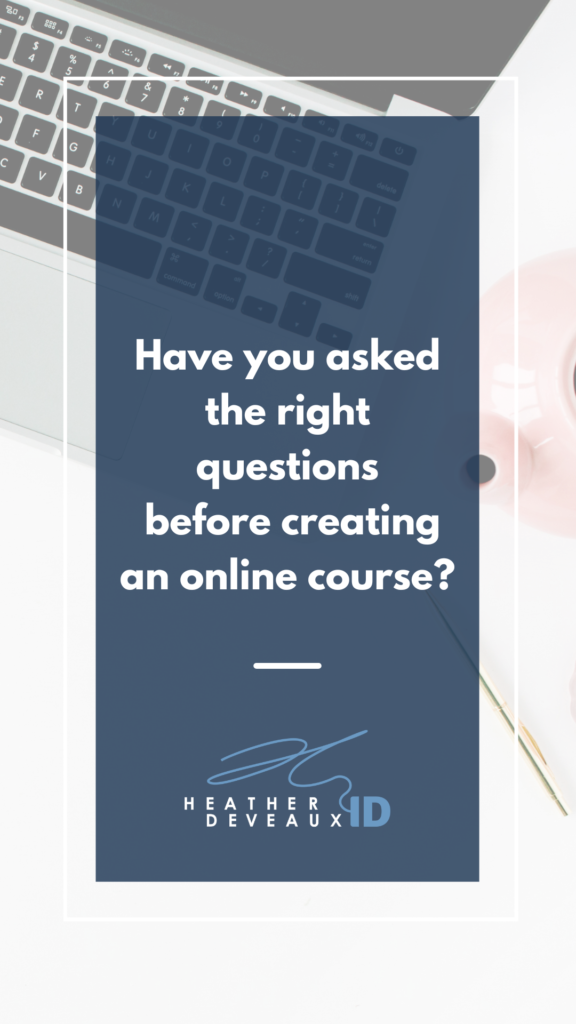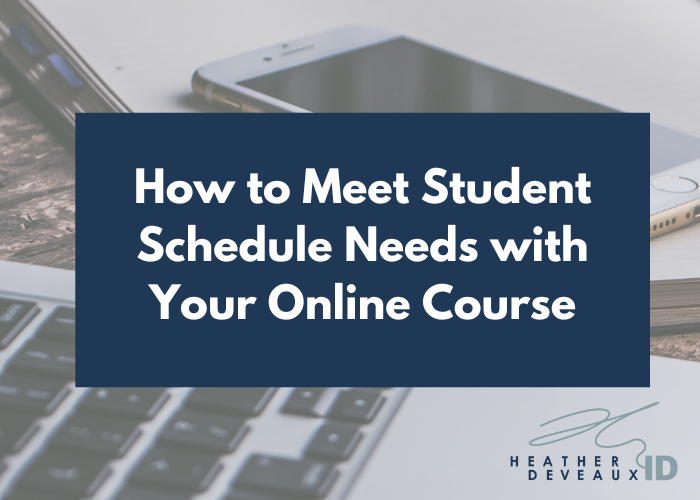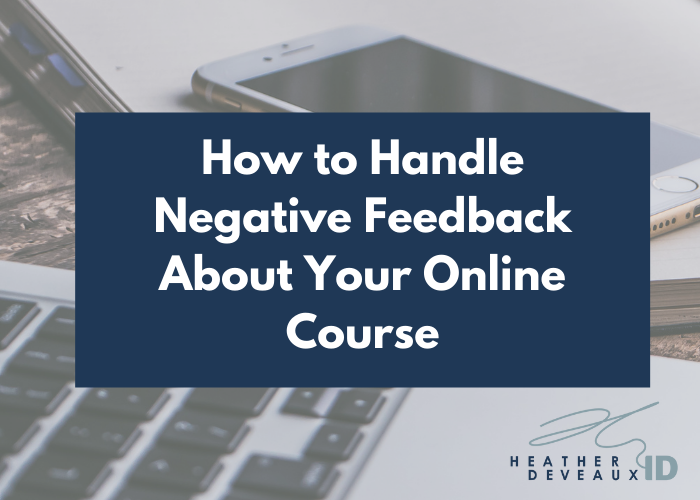What’s Special About Online Courses That Sell?
Online courses that sell have one thing in common: there is a demand for what the course teaches. And in order for there to be demand, there needs to be an audience. And in order for you to know what that audience wants, you need to do a little thing called market research. Except, in the adult learning and online learning spaces, market research is called a needs assessment. And a needs assessment isn’t something you do in passing.
In this article, we’re breaking down the three key questions to ask your audience BEFORE you create your online course so you can have a better chance of actually selling that course when it’s finished. But market research isn’t just for entrepreneurs who want to make bank from their online courses. Conducting a needs assessment is vital for corporations conducting internal training, non-profit organizations seeking to create awareness in the community, and healthcare facilities wanting to improve their services.

What’s the Difference Between Market Research and a Needs Assessment?
Honestly, nothing. Both are trying to understand a target market. The language of market research is for business owners and start-ups trying to break into the market with a new product or service. A needs assessment, on the other hand, is something that facilitators, coaches, trainers, and course creators talk about. Regardless of what you call it, implementing the process is what matters.
How Long Should you Spend Doing Research?
If you’re like most first-time course creators, you fall into either one of two categories. You’ve done no research and are so confident in your idea that you’re just ready to hit the ground running. Or, you’re so afraid no one will want your course when it’s ready to sell. So you just keep doing more and more research.
I recommended my clients speak directly to past customers or existing clients to gather information. I asked them to speak to at least 3-5 people to start. If they didn’t have an existing audience then I recommended a lot more conversations. As far as time is concerned, you should be in no rush to create your online course. Keep asking questions until you start to hear the same things over and over again.
The more work you do upfront, the better off you’ll be. When you work with an experienced instructional designer, it’s our job to know how to comb the data to figure out the learning journey. It’s our job to understand what benefits and opportunities exist in a given area of expertise. But we’re not the experts. You are. Instructional designers can create your course for you, but if you don’t have someone to sell it to, what’s the point?
What’s the Litmus Test of Needs Assessments?
Hiring a professional instructional designer to create your online course isn’t cheap. So if you’re hesitating about the quality of your research, ask yourself this? Would you pay $25,000 to find out if you’re right about it or do you need to do more research before you feel confident enough to back a course for that kind of cash?
When you start to measure real impact, not just to your audience, but to your business and organization in terms of dollars in hand, it becomes easier to determine if you’ve done enough research or not.
Hope is not a strategy, especially when it comes to online courses that sell. There are customers out there holding vital information that can help you make decisions about what to do with your subject matter expertise.
When You’re Blinded By Your Own Genius
I can’t tell you how many times a month I speak to potential clients who are already sold on their ideas. They just keep telling me how smart they are and how great their ideas are. They tell me how they think what they want to create is going to change the world. And that’s awesome. I can tell they believe it. Except, they don’t have an email list. They don’t have a list of people they can talk to about what should go in the online course. They aren’t even sure how they would get their foot in the door. Many potential clients want to create courses to sell to the government but have no idea how to generate a roadmap into such places.
This is where market research and needs assessments come in. Nobody wants to be told by a subject matter expert what they need. That’s what infomercials are for. Customers want to be asked. They want to be a part of the process. They want to be heard. And while we’re blurring the lines between business and online education here, it fits. Because online education is a business, except it’s probably not the kind of business you’re used to dealing in.
Working with a professional instructional designer can help you go from idea to fully finished, ready-to-sell online course. But you can only sell it if you know what your audience wants. So let’s dig into three questions that can help you find out.
Three Questions to Create Online Courses That Sell
Online courses that sell are able to solve problems. So it makes sense that question number one is: “what are you struggling with?”
Courses that do well in the marketplace teach skills. So it makes sense that question number two is: “what skill is your customer missing or what skill can you help them develop?”
Courses that create buzz provide tangible results. So it makes sense that question number three is: “what are your customers able to do with the solution you give them that they couldn’t do before?”
Sounds simple. And it is. But more often than not, course creators skip these steps. I create online courses with a bias toward action. Because it’s only in action that we can see something we couldn’t see before. And if we can see it, our students and customers can definitely see it.
Online courses that sell seem as though they are a dime-a-dozen, but the truth is that most people create courses and release them to crickets. If you’ve got the audience and you’ve asked the right questions, then and only then is it time to address and reassess your marketing. Not before the course is created. Adjust as you go, sure, but you need a solid starting point with which to gather more information. And a solid starting point requires a finished product.
Get Help to Create Online Courses That Sell
When you’re ready, book a call with me to talk about how I can help you create your online course. I’ll walk you through what you need to do to be ready and how to make sure your course sells when you launch. With barriers to entry at an all-time low, you want to make sure your online course is of the highest quality. You want to make your expertise shine. I can help you do that.







